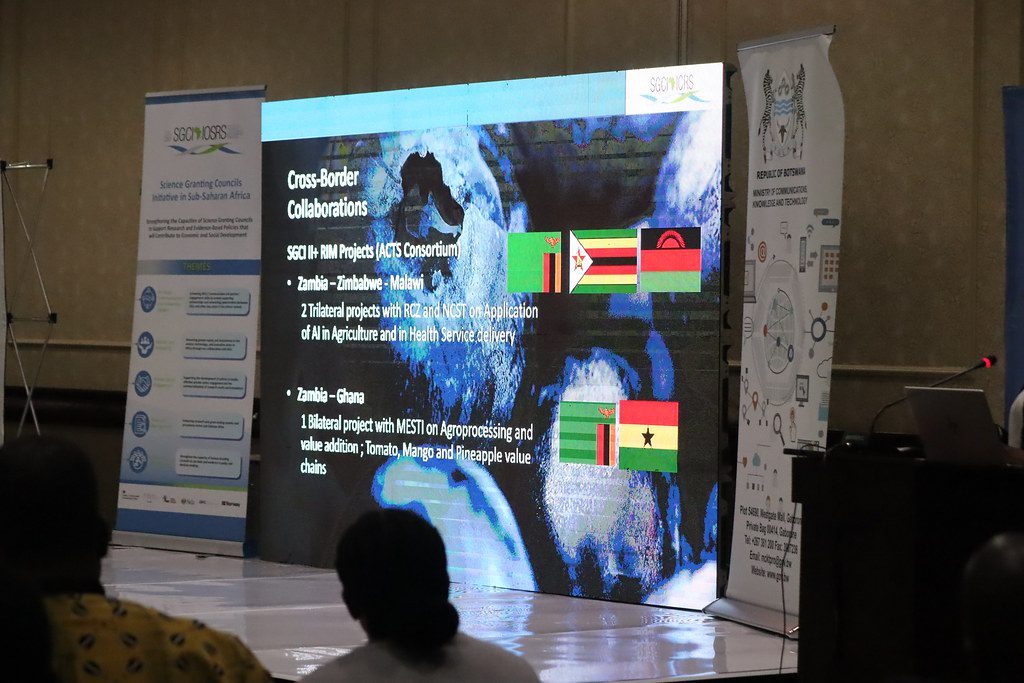SGCI News
[SciDevNet] The 2025 Global Food Policy Report warns that the world could be heading toward another major food crisis. For Africa, the warning is especially urgent. Across the continent, food…
[SciDevNet] The 2025 Global Food Policy Report warns that the world could be heading toward another major food crisis. For Africa, the warning is especially urgent.
Across the continent, food systems are under pressure from climate change, economic shocks, and political instability.
These overlapping challenges are making it harder for governments to respond to rising food needs or invest in long-term solutions.
In this episode of Africa Science Focus, reporter Michael Kaloki explores how research and evidence can help build food systems that are more resilient, inclusive, and better prepared for future shocks.
Steven Omamo, director of development strategies and governance at the International Food Policy Research Institute (IFPRI), says many African countries already have food policies, but poor implementation and weak investment continue to undermine them.
He highlights the value of science in guiding early warning systems, promoting stress-tolerant crops, boosting local production, and supporting community-based responses to disruptions caused by climate and conflict.
Food systems specialist Jane Battersby, associate professor at the University of Cape Town, urges a shift in focus toward urban food insecurity. She says while there is attention on hunger in rural areas, a large number of food-insecure people live in cities, often in informal settlements where food is available, but unaffordable.
Zippy Ondisa Shiyoya, director at the Institute of Packaging Professionals of Kenya, says poor coordination, high policy costs, and unreliable data are barriers to effective food strategies.
She explains how science underpins food safety and quality, from production, through to distribution, consumption and data gathering. It guides better packaging solutions, which extend shelf life, reduce spoilage, and minimise post-harvest losses — a major source of food waste across the continent.
This podcast was supported by the Science Granting Councils Initiative which aims to strengthen the institutional capacities of 18 public science funding agencies in Sub-Saharan Africa.
Do you have any comments, questions or feedback about our podcast episodes? Let us know at podcast@scidev.net
Africa Science Focus is produced by SciDev.Net and distributed in association with your local radio station.
This piece was produced by SciDev.Net’s Sub-Saharan Africa English desk.
Related News
How Zambia’s science council is funding research that matters
When Zambia’s National Science and Technology Council (NSTC) was established in 1997, its founding vision was to harness science, technology, and innovation to improve the lives of ordinary Zambians. More than two decades later, that vision is increasingly taking shape through a growing portfolio of…
Voices of SGCI: Council leaders on the direction and ambition of SGCI 3
At the African Union’s Science, Technology and Innovation Week in Addis Ababa, earlier this month, leaders of science granting councils reflected on what SGCI Phase 3 represents for Africa’s science and innovation systems. From ownership and alignment to stewardship and sustainability, here are their voices…
Building Africa’s science future: inside the SGCI alliance
As Phase 3 of the Science Granting Councils Initiative launches on the margins of the African Union Summit in Addis Ababa last week, the SGCI Alliance Chair explains why this moment marks a decisive turning point for African science. Cephas Adjei Mensah describes what is…
SGCI funded projects
Rwanda’s integrated approach to sustainable agriculture and nutrition
Project Titles & Institution Areas of Research Number of Projects being funded Project Duration Grant Amount In-Kind Distribution Council Collaboration with other councils





